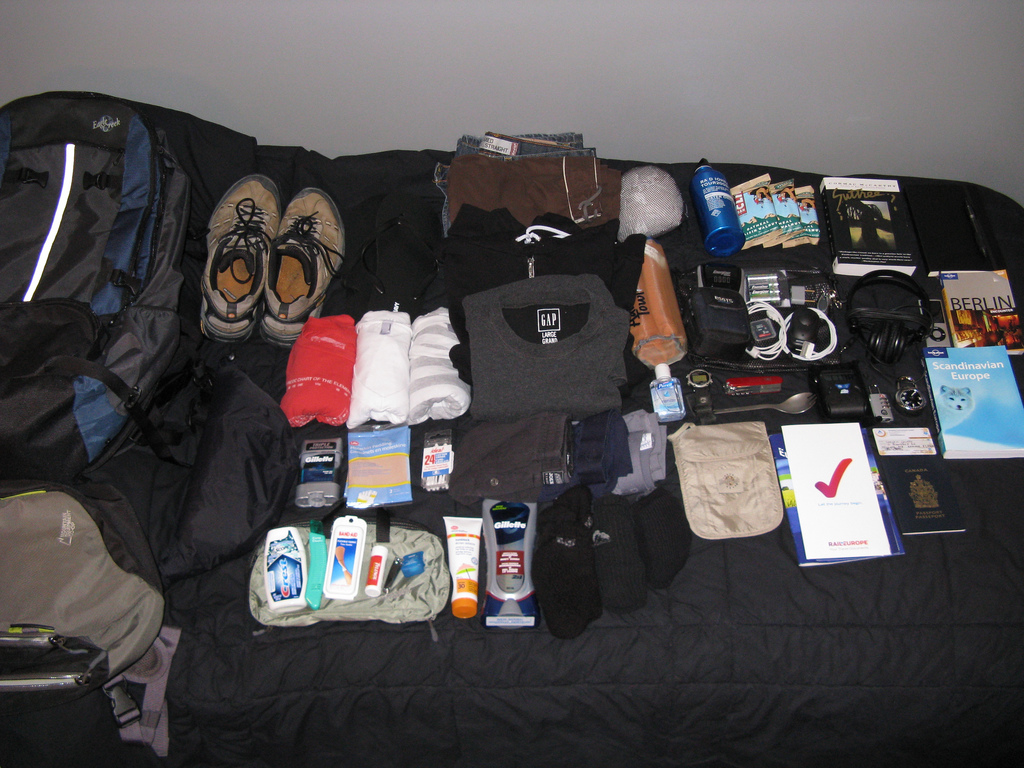Whether you’re planning an extended tour to far-flung locations or you’re driving a couple of hundred miles for a family break, saving space with packing and storing can make the trip more enjoyable and even net you some extra income.
Short Travel Tips
Light packing keeps you more mobile as you’re not bogged down with unnecessary bags, but it has its disadvantages. You don’t, for instance, want to miss out on surprise events because you don’t have the right clothes with you. The temptation is to pack everything ‘just in case’ and end up with several suitcases.
Don’t Take What You Don’t Need
Unless you’re camping, you don’t need to carry along towels, an extensive collection of beauty or shower products or equipment. Hotels will often supply everything right down to a hairdryer, although you should check first to make sure. Buy small sizes of toiletries when you reach your destination instead of carrying along full sized bottles of everything.
For most holidays, you don’t need more than two pairs of shoes, one for walking or sightseeing and one dressier pair for evenings out. Flip-flops or beach shoes don’t count.
As long as you’re not in some very remote location, there are always shops for emergency purchases, but chances are you won’t miss what you don’t take. If you know you’re a chronic overpacker, lay out everything you think you need, then try to cut the amount in half.
Build Versatility into Your Wardrobe
Only take clothes that serve more than one purpose. Would a shirt double as a jacket? Would a scarf double as a belt or shawl? Consider ways you could dress up casual clothes in case a more formal or dressed up appearance is needed. A crisp white shirt looks smarter with jeans than a T-shirt, for instance, or dress up simple day dresses with a belt and heels.
Keeping the colour palette to no more than three different colours helps too. Your wardrobe will be more versatile when everything goes with everything else. Never pack something that has to be worn only with one or two other things.
Long Travel Tips
Naturally, you’ll pack more for longer trips but not much, and the same rules apply. Keep the weight down by packing fleeces instead of heavy cottons or woollens for cool climates, and pack for the destination. Clothing needs are different for a beach holiday than they are for a city break.
An often missed opportunity during a long trip, is to make the house earn its keep by renting it out while you’re gone. There are a couple of options:
1) A traditional let if you’re away for months or more. Ask local letting agencies about terms and what you’d need to do to get the house ready. Most traditional lets are on an unfurnished basis, so you’ll need somewhere to store your personal effects. Self storage is simple to arrange, doesn’t cost a lot and offers flexible terms if you don’t have exact departure and return dates. As well as lots of variety in room sizes, the locations are convenient and access is good for removal vans.
2) Short term lets to holidaymakers is a second opportunity. Companies such as Airbnb let you offer your home to fellow travellers, bringing in some income that can help with your own travel plans. Here, too, you’ll probably want to remove some personal items, but will need to leave most basic comforts (like entertainment systems, furniture, linen etc.) in place.
Both options pay for themselves in returned income, offsetting any storage costs incurred. Both also keep the house ticking over and more secure as it’s not left vacant for several months.
Bonus Tips for Long or Short Trips
Have an Itinerary — Some people prefer spontaneity but, if you can bear it, knowing in advance what you’ll be doing helps with packing. You won’t be tempted to pack evening clothes when you know you won’t need them.
Lists — Packing from a list helps in two ways:
1) Keep your clothes/holiday list for the following year’s travels, making a note of anything you took but didn’t use. This helps you eliminate it from the list next time.
2) If you’re storing items, lists help you remember what you stored and where, so unpacking is more efficient. Itineraries of items left in situ may be needed, so building lists of what you pack and what you leave behind also completes this task at the first pass.
We all have our own ways of doing things, and there’s no right or wrong. Whether you’re saving space in your suitcase or space at home or in storage, these tips will help you get the most out of both long and short travel adventures.

